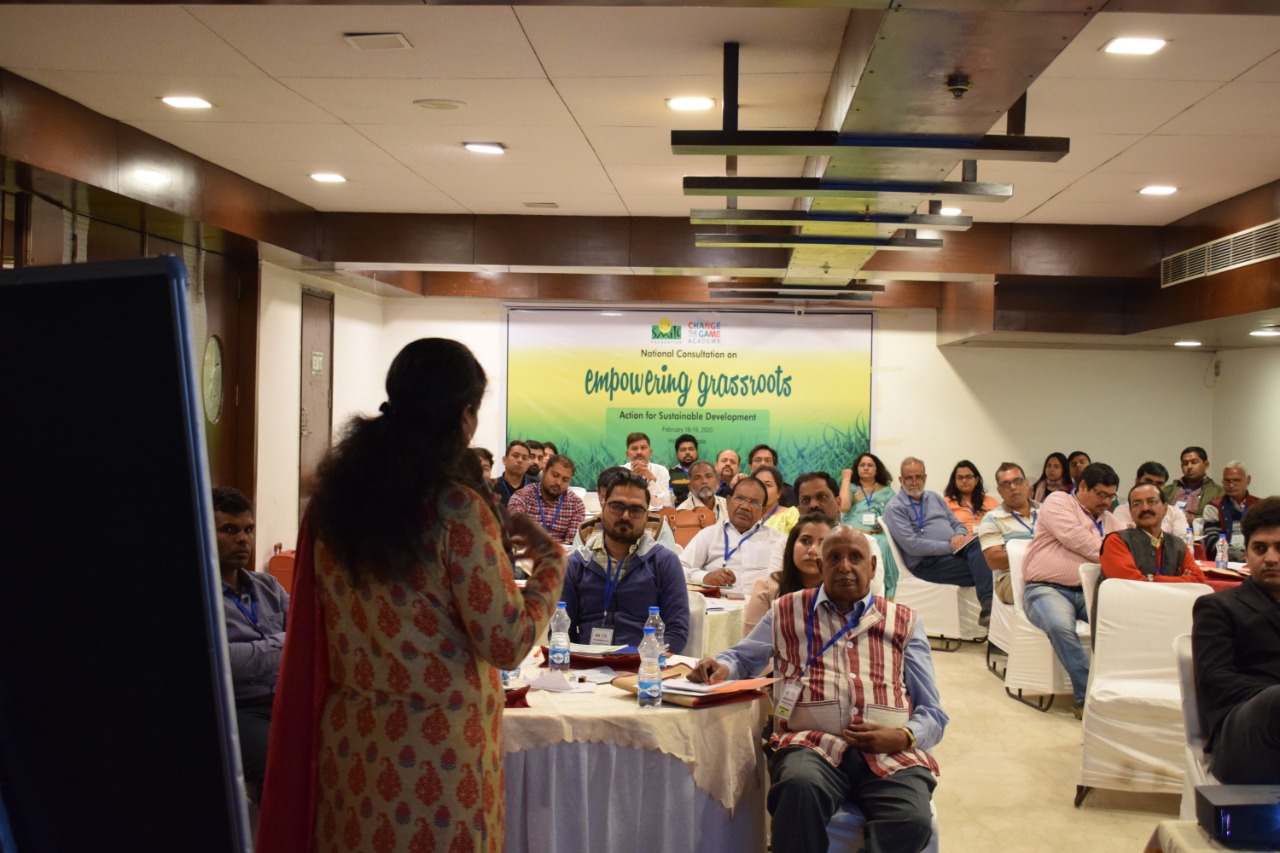National NGOs look at leveraging domestic fundraising and innovation for sustainability

- Country:
- India
With its commitment to work towards ‘Civic Driven Change’, Smile Foundation has teamed up with Wilde Ganzen’s Change the Game Academy to bring in best practices and help grassroots organizations take forward their development mandate. Through a unique classroom learning course, twenty-three NGOs get to hear from experts on how to tackle fundraising issues and comply with the processes of due diligence from stakeholders to avoid abrupt shutdowns.
This is particularly important in today’s context as over the past decade or so, dependence on foreign funding for national NGOs has been erratic and is on a slowdown. As per a recent report, there has been a decline of 40 percent in foreign funds for NGOs over the past five years. This coupled with global economic slowdown and emergence of corporate social responsibility and individual giving, local organizations are looking for new ways to raise resources and support for the causes they champion within the national markets.
“The lack of dealing with funds, and following due diligence is an issue with a large number of NGOs working at a community level,” said Santanu Mishra, Co-founder, and Trustee, Smile Foundation.
“Sometimes they don’t know how to raise resources, and many times when they have funds, they don’t know the compliance processes. The shrinking of foreign funds has led to a need to raise funds domestically and thereby put NGOs in a difficult position,” he said.
“Self-Sustainability is a big question for these smaller NGOs. Change the Game Academy (CtGA) addresses these issues through its Classroom Course approach by focusing on the aspect of local fundraising. The course brings forth a paradigm shift to the participants that local fundraising is a more sustainable option in the long run and they leave the room equipped with skill-set, ready with an event plan to fundraise,” said Gargi Kapoor, In-charge, CtGA, India.
“These workshops help civil society to rethink their business models, think strategically about its financial models and adopt new and innovative approaches that will help the sector maintain its independence and still be sustainable. The idea exchanges that happen through the workshops empower these smaller units with long term and short-term fundraising goals,” she explained.
Shabnam Siddiqui, Director CEGET, UNGC Network India inaugurated the event and delivered the session on CSR Act and recent amendments in India. She mentioned that “it is more a need today than ever before to work with compliance and regulatory norms. The growing spends by corporates and the Government’s thrust towards CSR has made it a prerequisite for all NGOs to adhere to the norms stated. Failing to do so, results in shutting down of operations.”
There is a growing trend in donations by individual philanthropists. They have ensured that the role of private funding continues to grow despite slowing foreign fund inflows. Similarly, funding under Corporate Social Responsibility (CSR) is maturing, which has seen a growth of 12 percent in recent times, but local NGOs need to explore ways to also find alternate means of fundraising.
The answer for smaller NGOs is on finding financial stability, which is basically about diversifying financial resources to have a healthy mix of long and short-term funding, CSR donations, foreign and local donors as well as internally generated resources by events, fundraisers, etc.
With most organizations that are working at the state level and rooted in the community, the understanding of financial stability is poor and lack of mentoring makes is difficult to sustain with changing scenarios. Change the Game Academy (CtGA) through its classroom course program aims to empower smaller nongovernment organizations in methods to become self-reliant and sustainable, and help them understand the dynamics of being self-sufficient and self-reliant.
- READ MORE ON:
- NGO fundraising










